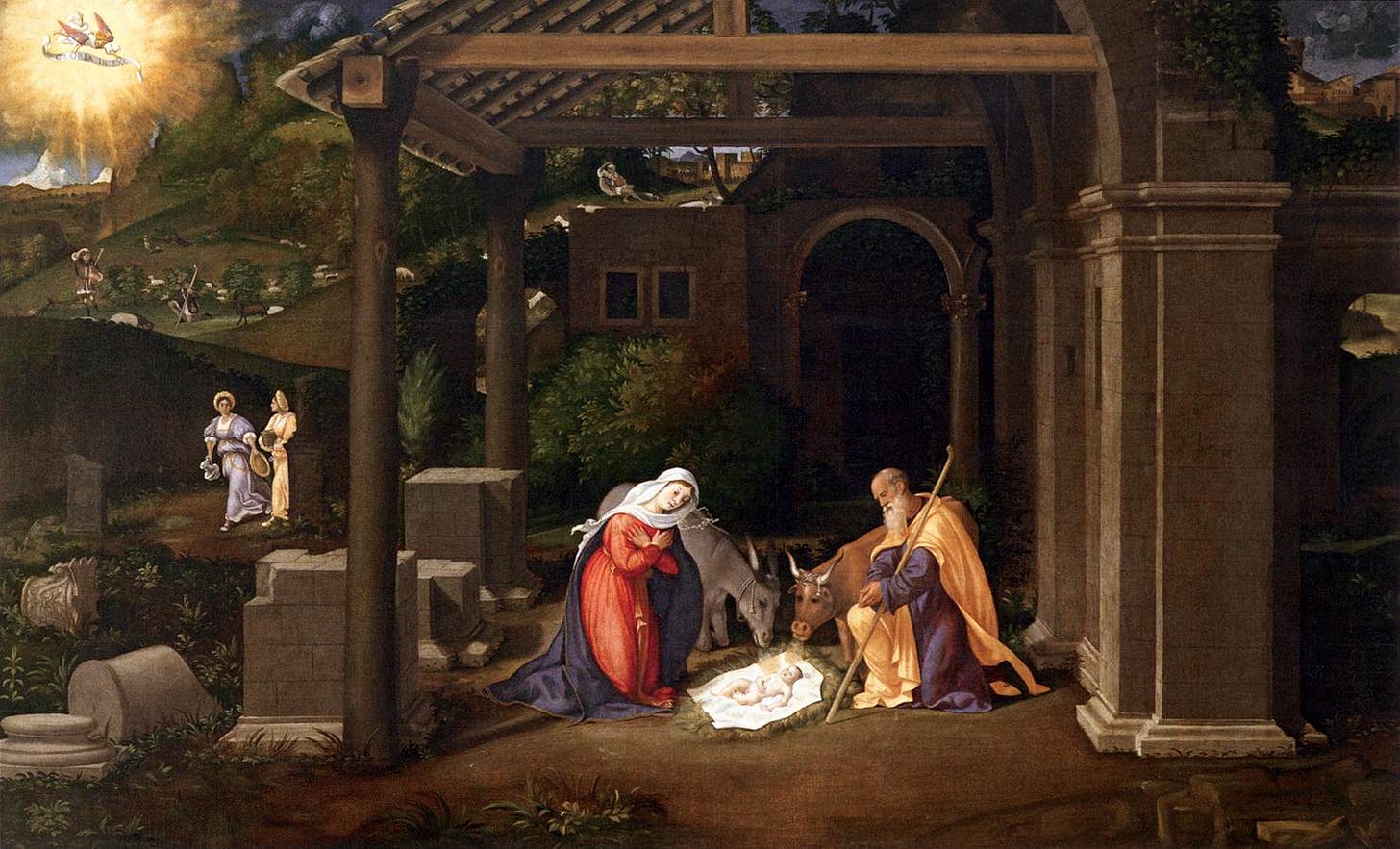
The Oxen
by Thomas Hardy
Christmas Eve, and twelve of the clock.
“Now they are all on their knees,”
An elder said as we sat in a flock
By the embers in hearthside ease.
We pictured the meek mild creatures where
They dwelt in their strawy pen,
Nor did it occur to one of us there
To doubt they were kneeling then.
So fair a fancy few would weave
In these years! Yet, I feel,
If someone said on Christmas Eve,
“Come; see the oxen kneel,
“In the lonely barton by yonder coomb
Our childhood used to know,”
I should go with him in the gloom,
Hoping it might be so.
═════════════════════════There’s a temptation I feel to name “The Oxen” the greatest — the most affecting, the most powerful — Christmas poem ever written.
That’s a weakness in me, I realize: an emotional judgment that sets the poem above, say, Christina Rossetti’s “In the bleak midwinter” (1872) or Robert Southwell’s “The Burning Babe” (1595) or an…
Keep reading with a 7-day free trial
Subscribe to Poems Ancient and Modern to keep reading this post and get 7 days of free access to the full post archives.



